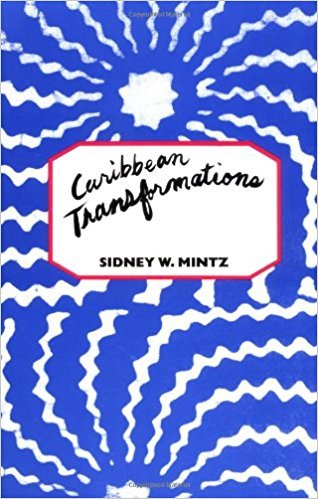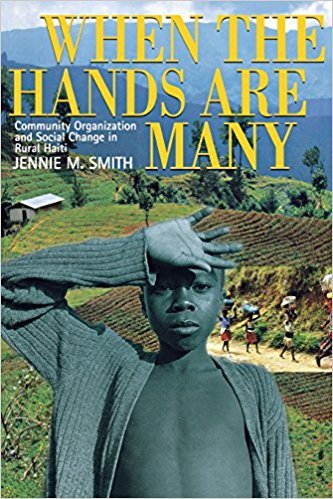July 27, 2017
Contact and clash, amalgamation and accommodation, resistance and change have marked the history of the Caribbean islands. It is a unique region where people under the stress of slavery had to improvise, invent and literally create forms of human association through which their pasts and the symbolic interpretation of their present could be structured.Caribbean Transformations is divided into three major parts, each preceded by a brief introductory chapter. Part One begins with a look at the African antecedents of the Caribbean, then discusses slavery and the plantation system. Two chapters deal with slavery and forced labor in Puerto Rico and the history of a Puerto Rican plantation. Part Two is concerned with the rise of a Caribbean peasantry--the erstwhile slaves who separated themselves from the plantation system on small plots of land.
July 27, 2017
In an ethnography that challenges standard approaches to understanding the poor and disempowered, Jennie M. Smith's descriptions of peasant activity change what constitutes a democratic society. Through their civil institutions and artistic expression, Haitian peasants, widely known as some of the world's most impoverished, politically disempowered, and illiterate citizens, debate the meanings of development, democracy, and the public good.Smith offers a historically grounded overview of how the Haitian state and certain foreign powers have sought to develop rural Haiti and relates how Haitian peasants have responded to such efforts through words and deeds. The author argues that songs called chante pwen serve as "melodic machetes," a tool with which the peasants make their voices heard in many social circumstances.When the Hands Are Many illustrates the philosophies, styles, and structures typical of social organization in rural Haiti with narrative portraits of peasant organizations engaged in agricultural work parties, business meetings, religious ceremonies, social service projects, song sessions, and other activities. Smith integrates these organizations' strengths into a new vision for social change and asks what must happen in Haiti and elsewhere to facilitate positive transformat
July 27, 2017
“Paul Farmer, doctor and aid worker, offers an inspiring insider's view of the relief effort.”—Financial Times
“The book's greatest strength lies in its depiction of the post-quake chaos… In the book's more analytical sections the author's diagnosis of the difficulties of reconstruction is sharp.” —Economist
“A gripping, profoundly moving book, an urgent dispatch from the front by one of our finest warriors for social justice.” —Adam Hochschild
July 27, 2017
The Uses of Haiti tells the truth about uncomfortable matters—uncomfortable, that is, for the structures of power and the doctrinal framework that protects them from scrutiny. It tells the truth about what has been happening in Haiti, and the US role in its bitter fate.—Noam Chomsky, from the introduction
In this third edition of the classic The Uses of Haiti, Paul Farmer looks at what has happened to the health of the poor in Haiti since the coup.
July 27, 2017
Clash of Cultures retraces the United States intervention and occupation of Haiti for two decades, 1915-1934. Though the treaty of 1916, which legalized the occupation, did not place educational matters under American control, the Marines used their unlimited authority to interfere with the operation of Haitian schools. Their interference led to a clash between Haitian and American cultures over educational policy for Haiti. American officials proceeded to develop a scheme aiming at a complete take-over of the Haitian school system, which was sternly opposed by the Haitians. As the obstacles in the way of a take-over proved to be insurmountable, the Americans moved to bypass the Haitian school system by creating a system of their own through the Service Technique de l'Agriculture et de l'Enseignement Professionnel, an American controlled agency. Clash of Cultures highlights the patterns of racism which permeated educational aims and objectives pursued by American bureaucrats. It demonstrates that in the background of the cultural conflicts between Haiti and the United States lies a wider collision of cultural imperialism, between the Breton clergy who safeguarded the French culture in Haiti and the Anglo-Saxon Americans.
July 27, 2017
The relations of the United States with Haiti have been different from American relations with any other nation; they have been vital and at times even dramatic. They climaxed in 1891 when the United States failed to make Haiti lease her Mole St. Nicolas. This failure constitutes an amazing episode in American diplomatic hostory. Recounting the story of Haiti's struggle for independence, the book discusses her diplomatic relations with the United States.





